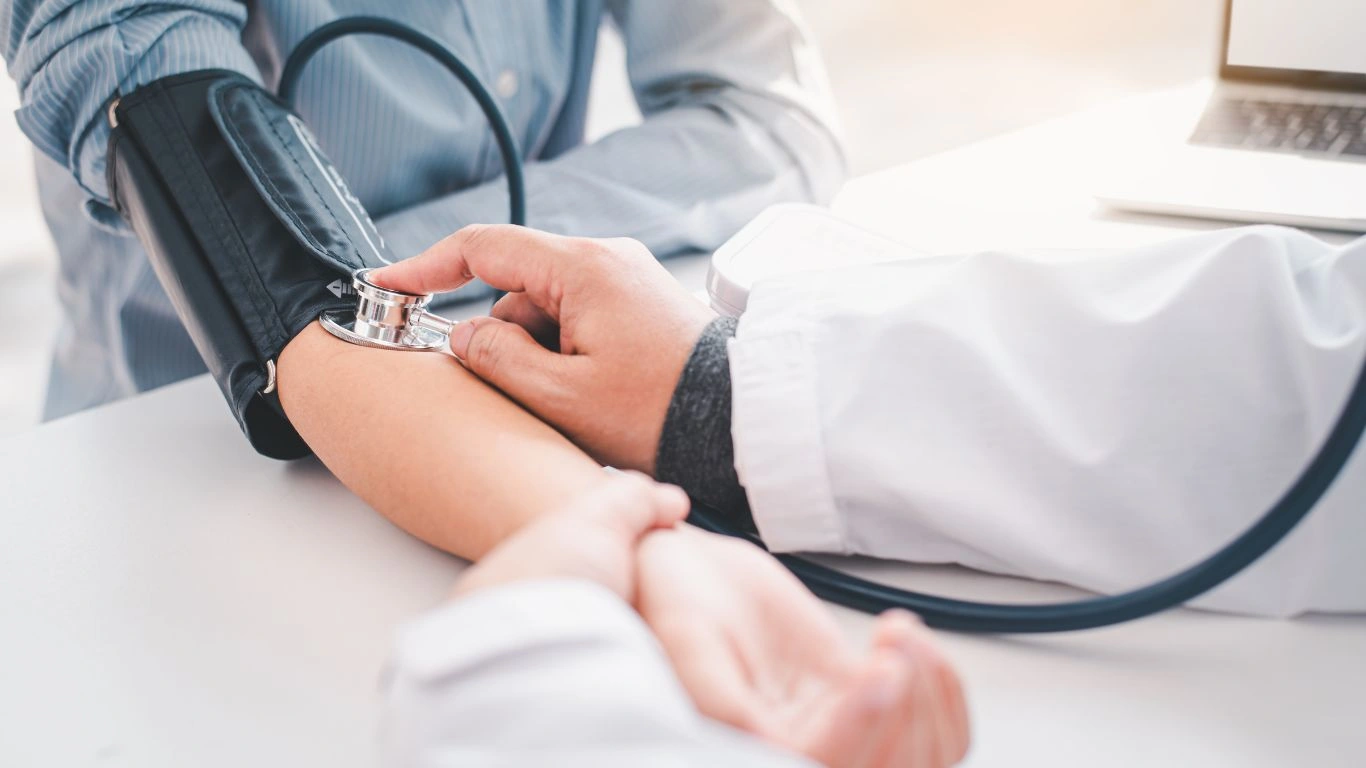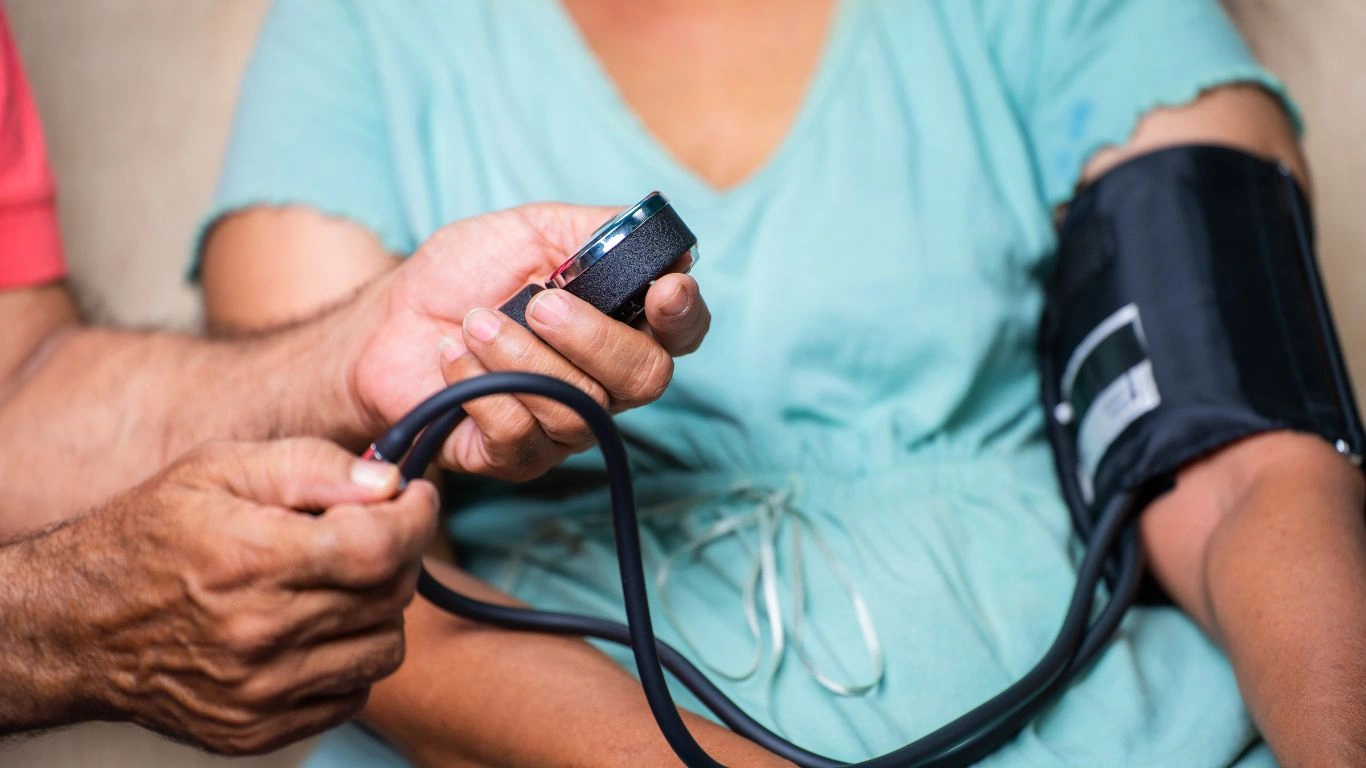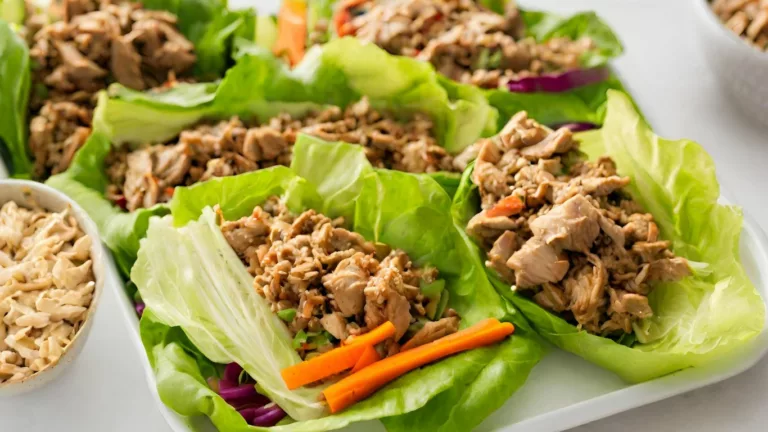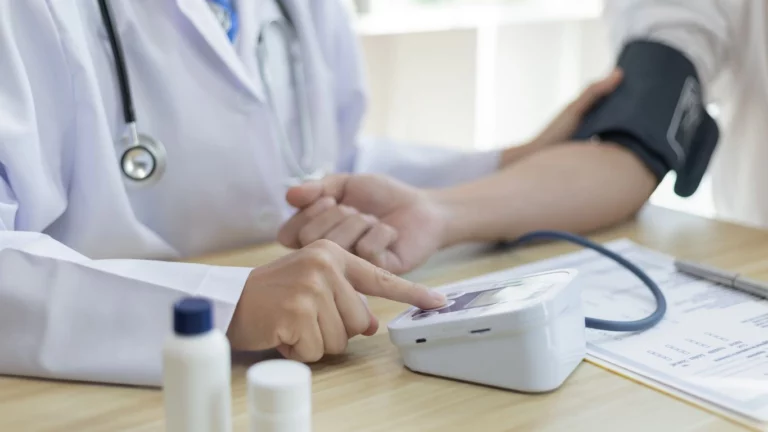“Unlock the Truth: High Blood Pressure and Vitamin Deficiency Symptoms Explained”
As a physician specializing in hypertension management, I’ve seen countless patients struggle with high blood pressure. Often, it’s not just the lifestyle factors like poor diet and lack of exercise that contribute to the problem, but something more subtle: nutrient deficiencies. You might be wondering, how can something like a vitamin deficiency contribute to something as serious as high blood pressure? Well, in my years of practice, I’ve discovered that the connection between high blood pressure and vitamin deficiency symptoms can be a lot stronger than we think. Let’s explore this in more detail.
Understanding High Blood Pressure and Its Causes
High blood pressure, or hypertension, is often called the “silent killer” because it can progress for years without symptoms. If left untreated, it increases the risk of severe health problems, including heart disease, stroke, and kidney damage. Hypertension is usually diagnosed when blood pressure readings consistently exceed 130/80 mm Hg.
But what causes high blood pressure in the first place? Many factors can contribute, including genetics, poor diet, lack of physical activity, excessive alcohol consumption, and stress. However, over the years, I’ve noticed that something many people overlook is the role of vitamin deficiencies.
How Vitamin Deficiency Affects High Blood Pressure
At first glance, you might not immediately associate your vitamin intake with hypertension. But as I’ve witnessed in my clinical practice, certain vitamin deficiencies can trigger or worsen high blood pressure symptoms. Let’s talk about how a lack of specific nutrients can play a role.
Vitamin D and Blood Pressure Regulation
One of the most commonly discussed vitamins in hypertension management is vitamin D. Research has shown that a deficiency in vitamin D is linked to increased blood pressure. Vitamin D helps regulate the balance of calcium in your blood, and when you’re deficient in it, your body may retain more calcium, which can increase blood vessel stiffness and raise blood pressure.
In my experience, many patients who have high blood pressure also have low levels of vitamin D. This deficiency can make it harder for the body to maintain proper blood flow and even increase the risk of cardiovascular disease. But the good news is, by increasing your vitamin D intake through foods like fatty fish or fortified dairy, or by getting more sunlight, you can help support healthier blood pressure levels.

The Role of Magnesium in Maintaining Healthy Blood Pressure
Another vitamin and mineral that is often overlooked is magnesium. Magnesium is essential for muscle function, and that includes the muscles that make up your blood vessels. When magnesium levels are low, it can lead to blood vessel constriction, which raises blood pressure. In fact, studies have shown that people with low magnesium levels are more likely to experience high blood pressure.
In my practice, I’ve recommended magnesium-rich foods, such as leafy greens, nuts, seeds, and whole grains, to many patients. Magnesium is also available in supplement form, but I prefer patients to get it naturally from food sources. It’s one of those nutrients that plays a vital role in muscle relaxation and proper blood vessel dilation, which can have a significant impact on lowering blood pressure.
The Connection Between Vitamin B12 Deficiency and Hypertension
Now, let’s talk about vitamin B12. This vitamin is crucial for nerve function, red blood cell production, and DNA synthesis. But did you know that it also plays a role in regulating blood pressure? A deficiency in B12 can lead to anemia, which in turn can cause your heart to work harder to pump blood. This added strain can contribute to elevated blood pressure.
Personally, I’ve seen many patients who are vegetarian or vegan have low levels of vitamin B12. Since B12 is found primarily in animal products, those who don’t consume these foods may be at a higher risk for deficiency. To combat this, I often suggest B12-rich foods like eggs, dairy, and lean meats or recommend supplements to help maintain healthy blood pressure levels.
Vitamin C and Its Potential Benefits for Blood Pressure
Another vitamin that’s gained attention in the hypertension space is vitamin C. You probably know vitamin C as the immune-boosting vitamin, but it also has a role to play in lowering blood pressure. Studies have suggested that vitamin C acts as an antioxidant, which can help improve blood vessel function and reduce the stiffness that often leads to high blood pressure.
Personally, I encourage my patients to include vitamin C-rich foods in their diets, such as citrus fruits, strawberries, bell peppers, and broccoli. It’s a simple, natural way to support overall heart health and blood pressure regulation.

Vitamin Deficiency Symptoms: A Red Flag for Hypertension?
If you’ve been dealing with high blood pressure and also notice any of the following symptoms, it might be worth considering a vitamin deficiency:
- Fatigue and weakness
- Pale or yellowish skin
- Muscle cramps and spasms
- Shortness of breath
- Heart palpitations
- Unexplained weight gain or loss
- Bone pain or muscle soreness
These are some common symptoms I see in patients with deficiencies in magnesium, vitamin D, or B12. If you’re experiencing these symptoms along with high blood pressure, it’s crucial to get your vitamin levels tested. A simple blood test can reveal deficiencies that, once addressed, may help improve your hypertension management.

How to Correct Vitamin Deficiencies for Better Blood Pressure Control
Now that we’ve discussed how vitamin deficiencies can contribute to high blood pressure, let’s talk about how you can correct these imbalances. Managing blood pressure isn’t just about popping a pill – it’s about lifestyle changes, including nutrition, exercise, and, yes, making sure you’re getting the right vitamins and minerals. When I work with my patients, I always start by focusing on dietary adjustments before considering supplementation.
Incorporating Vitamin D into Your Diet
One of the first vitamins I address in my practice is vitamin D. It’s so important for more than just bone health; it has a profound effect on your cardiovascular system. If your vitamin D levels are low, you might be at a higher risk of hypertension. Fortunately, this is something that can often be improved with a few changes.
For many people, getting more sunlight is one of the easiest ways to boost vitamin D. Just 15–30 minutes of direct sunlight a few times a week can be enough for most individuals. However, living in areas with limited sun or having darker skin may require additional sources of vitamin D.
If sunlight exposure isn’t enough, try incorporating vitamin D-rich foods into your diet, such as:
- Fatty fish like salmon, mackerel, and sardines
- Fortified foods like milk, orange juice, and cereals
- Eggs, especially the yolk
- Cheese and liver (though be careful with liver due to its high cholesterol content)
In some cases, I recommend a vitamin D supplement, especially for patients with severe deficiency. It’s always a good idea to check your levels with a simple blood test, so you know exactly where you stand.

Magnesium: The Unsung Hero of Hypertension
Magnesium is another vitamin/mineral that doesn’t get nearly enough attention when it comes to hypertension. I often tell my patients that magnesium is like the “unsung hero” in managing high blood pressure. It’s essential for relaxing blood vessels and reducing the pressure on your heart.
In my practice, I’ve noticed that many people are actually deficient in magnesium. This is especially common in people who consume a lot of processed foods or have digestive issues that make nutrient absorption more difficult. Magnesium can be found in a variety of foods, and I always emphasize the importance of incorporating these into your meals.
Here are some great sources of magnesium that I recommend to my patients:
- Leafy greens like spinach and kale
- Almonds, cashews, and other nuts
- Legumes such as beans and lentils
- Whole grains like quinoa, brown rice, and oats
- Bananas, avocados, and dark chocolate (yes, you can enjoy your chocolate!)
If your magnesium intake is still lacking, magnesium supplements can be an option, but I always prefer patients to get their nutrients from whole foods whenever possible. Magnesium supplements come in various forms, such as magnesium citrate or glycinate, and can be more effective when taken before bed, as they promote relaxation and better sleep quality.
Boosting Vitamin B12 Levels Through Diet or Supplementation
Now, let’s move on to vitamin B12. I can’t stress enough how important B12 is for energy levels and blood pressure management. Many of my patients with high blood pressure also show signs of B12 deficiency, particularly those who follow plant-based diets. Since vitamin B12 is primarily found in animal products, vegans and vegetarians are often at a higher risk of deficiency.
To get more B12 into your diet, consider the following food options:
- Fish, such as salmon and tuna
- Poultry like chicken and turkey
- Eggs and dairy products like milk and cheese
- Fortified plant-based milk (such as almond or soy milk) and breakfast cereals
If you’re vegetarian or vegan, it may be a good idea to discuss a B12 supplement with your doctor. It’s essential to monitor your levels since a B12 deficiency can lead to serious health issues, including nerve damage and anemia, both of which can worsen blood pressure problems.

Why Vitamin C is Crucial for Blood Pressure Regulation
Don’t forget about vitamin C! It’s not just for fighting off colds – it plays a critical role in cardiovascular health. As an antioxidant, vitamin C helps neutralize harmful free radicals in the body, preventing oxidative stress, which can contribute to high blood pressure.
Vitamin C is also involved in collagen production, which helps keep your blood vessels strong and flexible. Having healthy, flexible blood vessels means they can better adapt to changes in blood flow, ultimately helping keep your blood pressure in check.
If you’re not getting enough vitamin C, I highly recommend adding more fruits and vegetables to your diet. Some great sources include:
- Citrus fruits like oranges, grapefruits, and lemons
- Bell peppers (both red and green)
- Strawberries, kiwis, and papayas
- Broccoli, Brussels sprouts, and spinach
Including a variety of these in your daily meals is a simple, tasty way to give your cardiovascular system a boost. Vitamin C supplements can also be beneficial, especially if you have difficulty getting enough through food, but I always recommend food sources first.

The Impact of Lifestyle Changes on Hypertension and Vitamin Deficiency Management
Now that we’ve discussed the role vitamins play in managing high blood pressure, let’s dive into another critical aspect of hypertension management: lifestyle changes. Often, when people think of high blood pressure, they immediately think of medications. While these are important, they’re not the only solution. In my experience, addressing lifestyle factors—like your diet, exercise, and stress management—can be just as powerful when it comes to lowering your blood pressure and correcting vitamin deficiencies.
Dietary Changes for Better Blood Pressure Control
When it comes to managing hypertension, the food you eat plays a massive role. Along with ensuring you’re getting the right vitamins and minerals, maintaining a balanced, heart-healthy diet can significantly reduce your blood pressure. The DASH (Dietary Approaches to Stop Hypertension) diet is something I frequently recommend to my patients, and for good reason: it’s been proven to lower blood pressure by emphasizing foods that support cardiovascular health.
The DASH diet encourages:
- Plenty of fruits and vegetables (think color on your plate!)
- Whole grains like brown rice, quinoa, and oats
- Lean proteins, such as poultry, fish, and legumes
- Low-fat dairy products
- Reduced salt intake (ideally under 2,300 mg of sodium per day, or 1,500 mg for those with high blood pressure)
- Healthy fats, including olive oil, nuts, and seeds
Not only will this help with hypertension, but it also ensures that you’re getting a wide variety of essential vitamins and minerals. The beauty of this diet is that it’s not about strict restrictions but about making healthier food choices that can improve your overall well-being and blood pressure control.

Physical Activity and Its Role in Lowering Blood Pressure
Exercise is another cornerstone in hypertension management. Even if you have high blood pressure, regular physical activity can help lower it over time. The American Heart Association recommends at least 150 minutes of moderate-intensity exercise (like brisk walking) per week for adults, or about 30 minutes on most days of the week. It’s not about running a marathon—it’s about being consistent and incorporating movement into your daily routine.
From my experience, many patients who begin incorporating regular physical activity notice immediate improvements in both their blood pressure and overall energy levels. But there’s more to it than just the obvious benefits. Exercise helps improve circulation, strengthens the heart, and, importantly, reduces the levels of stress hormones that can contribute to high blood pressure.
Exercise doesn’t have to be intense. Some of the most effective forms of exercise include:
- Brisk walking or jogging
- Cycling or swimming
- Yoga and tai chi
- Strength training (with weights or resistance bands)
Even activities like gardening or dancing can count toward your exercise goal! Find something you enjoy, and it’ll be much easier to stick with.
Stress Management: A Critical Factor in Hypertension
Lastly, let’s talk about stress. We all experience it—whether it’s from work, family, or the pressures of daily life. But what many people don’t realize is how stress can directly impact blood pressure. Chronic stress causes your body to produce higher levels of cortisol, the “stress hormone,” which can increase blood pressure over time.
Managing stress is just as important as eating right and exercising. As a physician, I often recommend simple stress-reducing techniques to my patients, such as:
- Deep breathing exercises or meditation
- Mindfulness or guided imagery
- Getting adequate sleep (7-9 hours per night)
- Engaging in hobbies or activities that bring you joy
- Spending time with loved ones or pets
It’s also essential to take regular breaks throughout the day, especially if your job is demanding or stressful. I always tell my patients that even a short break to stretch, walk around, or practice deep breathing can help manage stress and improve their heart health. Over time, these stress management strategies can make a big difference in keeping your blood pressure within a healthy range.
Supplements: When Are They Necessary?
While I always encourage patients to aim for a nutrient-rich diet, there are times when supplements might be necessary. If you’re severely deficient in certain vitamins or minerals, such as vitamin D, magnesium, or vitamin B12, supplements can help fill the gap. However, it’s essential to approach supplementation with caution. More isn’t always better, and taking too much of certain nutrients can have harmful effects.
As a general rule, I recommend working with your healthcare provider to determine your needs. A simple blood test can help identify deficiencies, and from there, we can decide whether supplementation is appropriate. Additionally, supplements should always be used in conjunction with a healthy lifestyle. They’re meant to supplement, not replace, a nutritious diet.
For example, magnesium supplements can help improve blood pressure if dietary intake isn’t enough, but magnesium from food sources like spinach, almonds, and avocado is always the first choice. Similarly, vitamin D supplements might be necessary for those with low levels, especially during winter months when sunlight exposure is limited.

References
For more information about managing high blood pressure and the role of vitamins, consider exploring the following trusted resources:
Disclaimer
The information provided in this article is intended for educational purposes only and should not be construed as medical advice. Always consult with a healthcare provider before making any changes to your diet, exercise routine, or supplement regimen. The recommendations made here are based on general principles of nutrition and hypertension management, but each individual’s needs may vary.

Dr. Gwenna Aazee is a board-certified Internal Medicine Physician with a special focus on hypertension management, chronic disease prevention, and patient education. With years of experience in both clinical practice and medical writing, she’s passionate about turning evidence-based medicine into accessible, actionable advice. Through her work at Healthusias.com, Dr. Aazee empowers readers to take charge of their health with confidence and clarity. Off the clock, she enjoys deep dives into nutrition research, long walks with her rescue pup, and simplifying medical jargon one article at a time.







